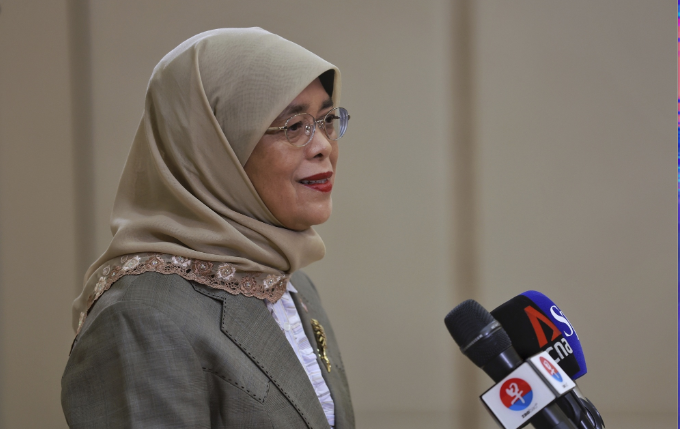"We must make meritocracy inclusive and one that does not inhibit social mobility," President Halimah said during her speech at the Institute of Polic
“We must make meritocracy inclusive and one that does not inhibit social mobility,” President Halimah said during her speech at the Institute of Policy Studies’ (IPS) 35th anniversary gala dinner on June 26, 2023. She revisited the core values of multiracialism, meritocracy, and stewardship that she emphasized when sworn in as President.
Reflecting on Singapore’s current landscape, President Halimah identified the rise of identity politics as a significant threat to multiracialism, citing how Singapore has ensured that “no one is left behind,” even amid the challenges posed by the COVID-19 pandemic.
Making Meritocracy Inclusive
While acknowledging that meritocracy has fostered social mobility in Singapore, President Halimah warned that the very conditions fostering meritocracy can lead to inequality. Parents who have benefited from the education system often have the means to offer their children better opportunities, potentially creating a cycle of inequality.
She advocated for a broader definition of success that goes beyond academic qualifications, as these can disadvantage those less academically inclined or from lower-income families. Opportunities should be extended to late bloomers and individuals excelling in non-academic areas, she stated. “We must make meritocracy inclusive and one that does not inhibit social mobility,” she emphasized.
Social Mobility at the Heart of the Singapore Dream
Social mobility is essential to Singapore’s growth model and nation-building, President Halimah affirmed. She highlighted existing initiatives aimed at leveling the educational playing field, such as reserving a portion of secondary school places for students from non-affiliated primary schools.
She urged employers to recognize and reward skilled workers lacking formal academic qualifications, ensuring these individuals have access to quality jobs and better pay.
Identity Politics a Threat to Multiracialism
President Halimah stressed the importance of multiracialism in Singapore’s identity, which has fostered societal harmony. However, the rise of identity politics poses a threat as it encourages individuals to prioritize group identities over broader community interests, potentially leading to radicalism and extremism.
She expressed concern about the challenges posed by identity politics and acknowledged that Singapore has faced its own issues with extremism, particularly among youth. “We must safeguard our society from such damaging influences,” she concluded.
Integrating New Migrants
Addressing the integration of new migrants into the local community, President Halimah emphasized Singapore’s openness to foreign talent but expressed concern that not all new migrants see the need to integrate. She warned that such polarization could disrupt social harmony and highlighted the necessity of examining current integration structures to improve the situation.
Accountability and Inclusivity
President Halimah reiterated the importance of accountability and caring for one another, particularly in light of the COVID-19 pandemic, which disproportionately affected disadvantaged groups. She praised the spirit of community support that emerged during these tough times.
She also lauded the Forward Singapore exercise, launched in 2022, as a means to engage Singaporeans in conversations about the nation’s social compact, enabling the younger generation to voice their aspirations.
Congratulations to IPS
In her remarks, President Halimah congratulated the IPS on its 35 years of impactful research, emphasizing the necessity of grounding public policy in solid data to respond effectively to future challenges. She called for a commitment to strengthening Singapore’s shared values of multiracialism, meritocracy, and stewardship.



COMMENTS